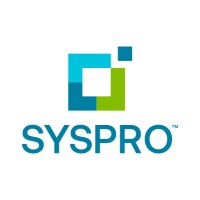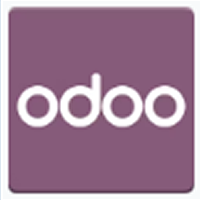What is Enterprise Resource Planning (ERP) software?
Enterprise Resource Planning (ERP) is a software system that integrates and manages core business processes, such as finance, supply chain, operations, reporting, manufacturing, CRM, and human resource activities, within a single unified platform.
ERP software pulls day-to-day data from many departments, merging it into a single source of truth that benefits the entire organization. ERP tools combine detailed information and key metrics from various resources, including finance, human resources, operations, manufacturing, sales, and marketing. ERP systems centralize data, minimize manual entries, and make business data visible to key stakeholders and their teams.
Here’s our list of the best ERP software based on expert recommendations:
- SAP: Best for global scalability
- Oracle Netsuite: Best for real-time data access
- Sage Business Cloud Enterprise Management: Best for industry-specific features
- Microsoft Dynamics 365: Best for integration with MS ecosystem
- SysPro: Most modular ERP
- Odoo: Best open source ERP
Our picks for the best ERP software
SAP: Best for global scalability

Pros
Cons
SAP ERP, developed by German software giant SAP SE, has been a leading enterprise resource planning solution since its inception in 1972.
It integrates core business functions, ensuring seamless operations across organizations. Over the years, SAP has evolved with technological advancements, transitioning from R/2 to R/3 and now to SAP S/4HANA. The latest iteration, S/4HANA, boasts real-time analytics, cloud compatibility, and intelligent automation. Its latest additions include enhanced sustainability integration, advanced compliance features, and a focus on industry-specific business processes.
Also read: Top SAP ERP Alternatives
Oracle Netsuite: Best for real-time data access

Pros
Cons
Oracle NetSuite ERP is a cloud-based business management suite that integrates ERP/Financials, CRM, and e-commerce solutions.
Originating in 1998 as a web-based accounting software, NetSuite has evolved to serve over 36,000 customers globally. As part of Oracle since 2016, Nesuite has offered a unified platform for diverse business needs.
Newer features emphasize global business management, omnichannel commerce, and enhanced analytics and reporting. The platform is often heralded by users for its real-time data access and scalability.
Sage Business Cloud Enterprise Management: Best for industry-specific features

Pros
Cons
Sage ERP, now known as Sage Business Cloud Enterprise Management, is an enterprise resource planning solution with a rich history, evolving from a small UK-based startup to a global software giant. Over the years, it has expanded its capabilities to cater to various industries, from manufacturing to services, and introduced advanced AI-driven analytics, cloud integration, and mobile accessibility.
Microsoft Dynamics 365: Best for integration with MS ecosystem

Pros
Cons
Microsoft Dynamics 365 ERP is an enterprise resource planning solution that forms part of Microsoft’s broader Dynamics 365 suite.
It’s designed to unify business operations across finance, manufacturing, supply chain, operations, and retail into one integrated system. With cloud capabilities, it offers real-time data access, advanced analytics, and AI-driven insights.
The platform stands out for its seamless integration with other Microsoft products, such as Office 365, Power BI, and Azure, providing a cohesive ecosystem for businesses. Its modular approach allows organizations to adopt only the features they need, scaling as they grow.
SysPro: Best modular ERP

Pros
Cons
Founded in 1978, SYSPRO is a leading global provider of industry-built ERP software designed to simplify business complexity for manufacturers and distributors. With its roots in South Africa, SYSPRO has grown over the decades to serve thousands of companies across 60 countries.
SYSPRO’s software stands out for its modular design, allowing businesses to tailor the system to their unique needs, ensuring both flexibility and scalability. Recent innovations include the incorporation of artificial intelligence and machine learning capabilities, enhancing predictive analytics and offering deeper insights into business operations. Another standout feature is SYSPRO’s “Avanti” – a web-based interface that provides users with a device-agnostic way to access their ERP software, ensuring mobility and real-time access to critical business data.
Odoo: Best open source ERP

Pros
Cons
Odoo, founded in 2005, has grown into a leading global open-source ERP provider. Initially named TinyERP, it evolved into OpenERP before adopting its current name. Odoo’s strength lies in its modular architecture, offering over 10,000 integrated apps catering to various business needs. Its latest features emphasize IoT integration, e-learning modules, and website builders. The platform’s continuous evolution, driven by a vast community, ensures it remains at the forefront of business solutions.
Find your new ERP software
ERP software for different industries
Different industries have different needs from their ERP software. While all ERP systems minimize the manual processes used in day-to-day operations, a wide variety of ERP systems are available. Businesses, whether they are in the construction industry (and using a project-based ERP) or in sales and marketing (with a focus on customer satisfaction) can take advantage of ERP software.
When manufacturing ERP software is used, a business can adapt more quickly to changes in the sales pipeline. Upcoming workloads can be planned more efficiently. Human resources then increases hiring and ensures the plant is staffed. Logistics finds the fastest delivery routes from the latest data. Warehouse management receives constant updates on their inventory, allowing them to fill orders faster. The financial team can improve their forecasts with accurate data. Manufacturing and product teams streamline processes with interconnected features that bring together the functions of other software systems, including:
- Supply chain management
- Inventory management
- Material requirements planning (MRP)
- Fleet Maintenance
- Work order software
Also read: ERP vs. MRP
Sales, marketing, and customer service teams increase functionality and satisfy existing customers with centralized data from ERP modules, including:
- Customer relationship management (CRM)
- Contract management software
- Customer service
- Helpdesk
- Marketing automation
HR teams organize workforce productivity through integrated software systems, including ERP modules for:
Interconnected data and business intelligence software provide financial and accounting teams with more accurate forecasts. These ERP tools reduce risk, improve collaboration, and drive growth through automation and data sharing. Overall, ERP suites bring together data via a fully integrated system, often saving the company money that would otherwise be spent on hundreds of unconnected apps.
Custom module combinations fit the needs of retail, franchise, logistics, medical, and many other industries. These industry-specific tools ensure regulatory compliance and the speedy delivery of products. Many modern tools include artificial intelligence (AI) features that help identify process improvements, provide detailed forecasts, and ensure that the company can pivot quickly after manufacturing setbacks.
Because of the complexity and number of features available through ERP software, it has been traditionally adopted by large enterprise corporations, but in recent years, ERP implementations have proven useful even for small and medium-sized businesses (SMBs).
For comprehensive comparison charts, jump to:
- Enterprise ERP comparison of SAP, Oracle, Microsoft Dynamics
- Midmarket ERP software comparison
- Small and medium-sized business ERP software comparison
Enterprise resource planning software varies widely between systems, industry focuses, and offered features, however, most systems will offer several of these modules:
- Human resources
- CRM
- Finance/accounting
- IT helpdesk
- eCommerce
- Order processing
- Inventory and procurement
In addition to department specific modules like those listed above, many ERP platforms target individual industries, such as manufacturing, field service, and technology. Industry-focused ERP systems combine helpful features, and offer a useful starting point for those new to ERP software. Additionally, vendors do offer custom ERP software configuration options, allowing organizations to design their own business rules.
Human resources
HR software modules connect your employee information and records with all the systems in your ERP. Payroll, time tracking, individual department scheduling and timesheets, succession planning, and hiring information all live in one place and can sync directly with accounting and financial management tools to give companies a cohesive understanding of how human resources directly affect the financial health of the whole company.
CRM
CRM modules, within an ERP software system, streamline sales-critical information with production and product teams. This means a seamless processing of contracts from the sales team to production to shipping and returns. A CRM in an ERP houses complete customer contact information and makes account notes available to all stakeholders in the purchase and production process.
Finance and accounting
Financial management and accounting modules in ERP systems combine financial information from across all the connected modules, giving an organization a complete picture of their accounting methods and revenue. These accounting tools help companies to merge profit and loss reports, and build forecasts that take into account information from the entire company.
IT helpdesk
IT helpdesk modules keep your company’s technology running smoothly. With integrated IT and ERP systems, your IT team can field questions and bugs from across the company, prioritize those jobs, and quickly follow up with stakeholders. These tools help IT departments track the ROI they bring to the team, their financial benefit to the company, and the impact of technology and software upgrades.
eCommerce
Connecting your company’s eCommerce website directly with shipping and product development modules within an ERP is a good idea. Purchasing an ERP with eCommerce integration will help your team draw connections between website health and overall revenue growth. It can also help to pinpoint bottlenecks that slow down production, or logistics issues that delay delivery. Additionally, there are eCommerce accounting modules which integrate online storefronts with back-end inventories.
Also read: Salesforce CRM 2023 Overview
Order processing
While work order software alone brings continuity to the sales and service sectors of a company, integrating order processing software directly with ERP tools gives business analysts insight into both inefficiencies “and” improvements across the sales cycle.
Inventory and procurement
Inventory and procurement software helps companies manage their warehouse and stockroom inventories. These tools ensure businesses keep the right amount of product in stock to cover seasonal and expected surges in demand. These tools, when connected with an ERP, help companies forecast product supply needs and ensure the right staff, shelf space, and logistical coverage.
Project-based ERP
Project-based ERP tools is a fairly recent innovation, and supports ERP projects. Managing projects has become increasingly complex over the past decade. As a result, large projects are often completed late and over-budget. Project management software can be used by individuals, small teams, and enterprise businesses to improve efficiency and communications. Deltek offers project-based ERPs.
What are the benefits of ERP software?
Enterprise resource planning software provides business operations with many benefits, including operational efficiency to improve the organization’s overall functionality. Accounting, customer relationship management, and business management functions improve significantly.
Reduced software overhead
ERP software allows teams to consolidate their tools into one unified system. Instead of paying separate subscriptions for services, such as core HR, CRM, shipping, and supply chain and inventory management, teams pay for a single platform that handles each of these tasks in a centralized system. The simplest way to achieve this goal is finding a system that requires no integration. Depending on the business’ size and complexity, reducing the number of software system subscriptions can significantly cut monthly overhead.
Increased communication
When data from all sectors of the company are integrated in a single software program to plan and track business events, all of that data can then be made available for team review. Many modern ERP systems invest heavily in analysis tools and visualizations that let team members create reports that show progress, indicate inventory levels, and notify colleagues of wins. Enterprise resource planning software then acts as the single source of truth for stakeholders to compare successes, and prepare for bumps in the road.
Silo reduction
Business silos—where teams work independent of one another to everyone’s detriment—greatly reduce company productivity. ERP tools help businesses publicize their goals and lets teams share their plans with one another. Teams who have access to the same data can compare notes across departments, helping everyone move toward those big business goals.
Standardization of manufacturing processes
For large manufacturing corporations with several facilities, sharing manufacturing plans and best practices can be vital for product and process standardization. ERP systems allow manufacturing teams to store manuals, blueprints, regulatory information, and vital statistics for each process in a single, searchable location. This allows different parts of the company to replicate processes across county and country lines without sacrificing quality or speed.
Inventory reduction
Whether it’s the number of widgets your company makes or the humans that install them, keeping more resources on hand than you need costs money. Enterprise resource planning solutions provide inventory management and analysis that allows companies to run leaner. Using technology like RFID tags, geofencing, and biometric data, enterprise resource planning systems can track assets through their entire lifecycle, from supply to sale. Many ERP systems will suggest inventory improvements over time. With reduced inventories, companies can repurpose storage space and cut down on their payroll costs.
Standardization of human resources information
Many ERP solutions provide Core HR products like payroll, scheduling, time clock, and benefits management. These modules connect the front of house, warehouse, and C-suite. With core HR features, an ERP system can use the time clock software to calculate payroll and benefits, and managers can access employee information when building schedules. Because employees are a company’s most expensive and valuable resource, it’s vital to connect the software that manages them with the rest of the enterprise’s data.
Also read: Best ERP for Operation Management
Choosing an ERP software solution
ERP software and the cloud
Cloud ERP describes an enterprise resource planning system operating from a vendor’s cloud platform, rather than an on-premises network. The cloud hosts the provides ERP software and, with organizations accessing the service over the internet. Because the software is hosted by a cloud based ERP system, the service tends to be superior, and comes without the hassle of integrating it with the business’s computer system.
The desire for cloud ERP systems has grown significantly in the last few years, primarily because of their abilities to access and analyze huge amounts of data in near real-time. Cloud computing lets a company leverage the servers and computing power of a SaaS vendor—rather than purchasing their own server farm or data center. Renting computing power from cloud vendors has significantly democratized highly complex computing programs like ERP, making them available to a wide variety of customers. Some examples of cloud ERP services are Oracle ERP Cloud, Sage Intacct, and Netsuite ERP Cloud (sometimes referred to as Oracle Netsuite).
Enterprise resource planning cloud-based software is designed to support the basic core functions that are needed from any ERP. From this software base, a variety of modules (or ERP applications) can be added to augment business functions. Organizations select which modules to add, based on their industry, and their individual business needs. The cloud ERP modules available typically include:
- Customer relationship management (CRM)
- Human resource management (HRM)
- Human capital management (HCM)
- Financial management and accounting
- Material requirements planning (MRP)
- Order management
- Procurement
- Inventory management
- Supply chain management
- Project management
Onboarding and time to market
ERP software is best characterized as a category of categories: each instance of the software can be made up of varying features and modules that best suit the needs of the company.
Because of its complexity, integration of an ERP system can take anywhere from a couple of weeks to several years depending on the size and needs of the purchasing company.
As you research your next solution, pay careful attention to the feature selection. Watch for any ERP integrations that can be made to existing software that is not covered by those features, and the price of any custom or add-on features. You should also ask ERP vendors up-front whether they have dedicated onboarding teams to assist you in those first several months and whether they charge an onboarding fee for any and all initial services.
Pricing
The ERP software market has exploded in the last 25 years, providing companies with lots of options for both single license and subscription SaaS products in varying price ranges. Depending on the features your company needs, an ERP software can range from a couple dollars per user, per month at the SMB level to many thousands of dollars a month for an enterprise corporation. Refer to individual vendors on the Products Page for more detailed information.
Potential pitfalls
Carefully consider any ERP software purchase. These systems can be expensive and will potentially manage the majority of your company’s data. Be sure the right software has been chosen, before signing a contract. Ask the ERP vendor if they provide onboarding support for data uploads, and integrations, with other systems. Additionally, be sure the ERP supports exporting data in a user-friendly way.
The ERP buying process is complex and filled with customization requests and uncertainty about vendor capabilities. Seeking out third-party help for ERP implementation is common, and—in the case of enterprise vendors—usually necessary.
Finding the right ERP software for your business
Selecting the right ERP software is not just about streamlining operations or automating tasks; it’s about choosing a system that aligns with your business goals, scales with your growth, and evolves with industry trends. The right ERP solution can be the linchpin of your organization’s efficiency, productivity, and innovation.
When evaluating ERP options, it’s essential to consider not only the immediate needs but also future aspirations. Think about the adaptability of the software, the quality of customer support, integration capabilities, and the potential return on investment. Remember, an ERP system is not just a tool but a long-term partner in your business journey. By investing time in thorough research, consultation, and reflection, you can ensure that you select an ERP system that propels your business to new heights of success.





